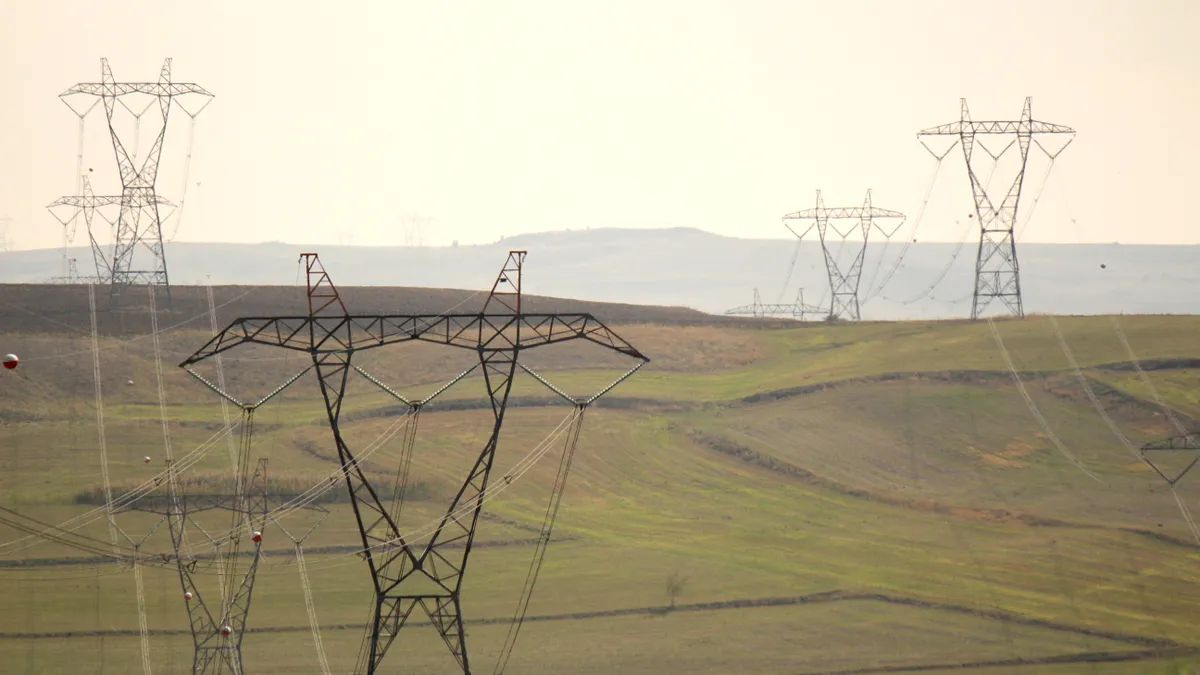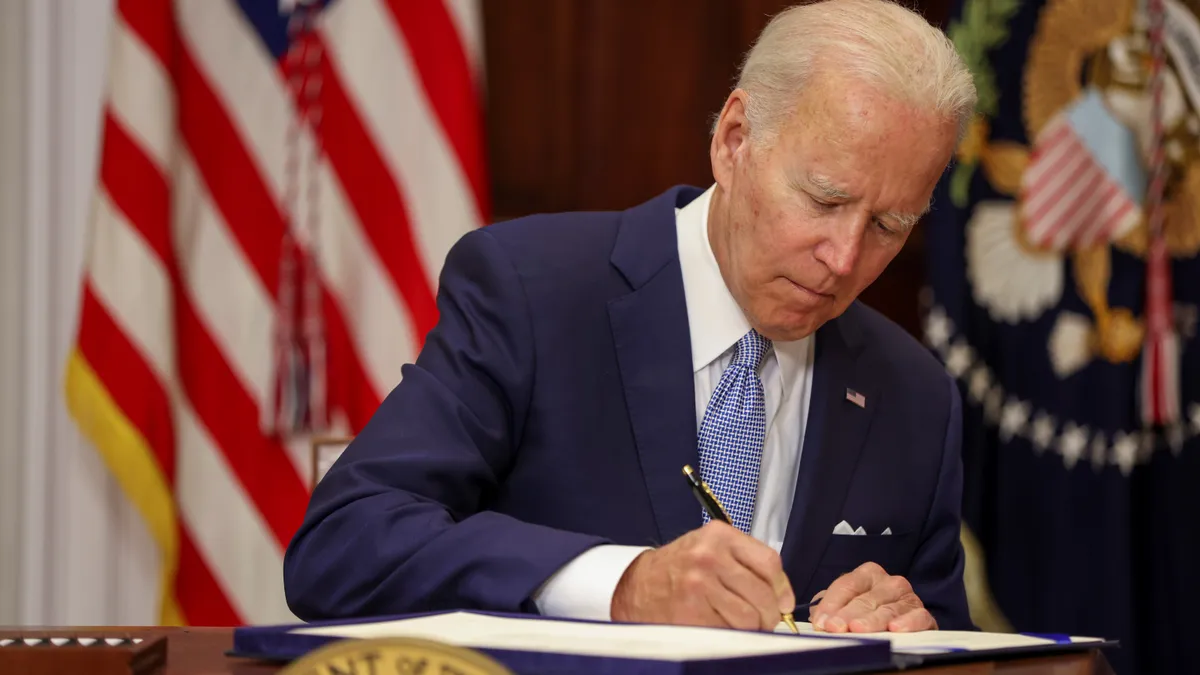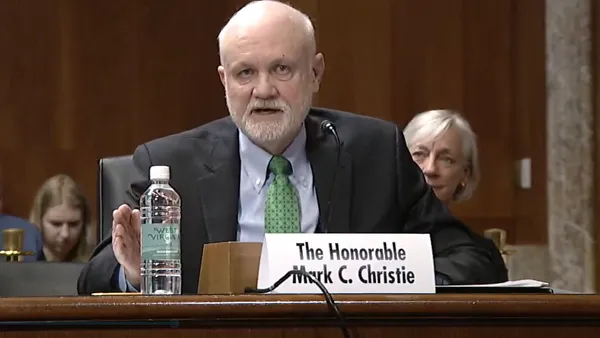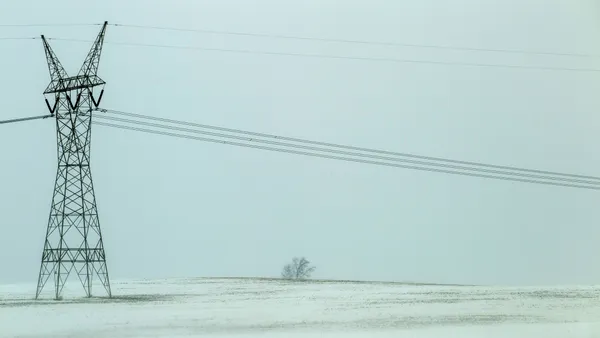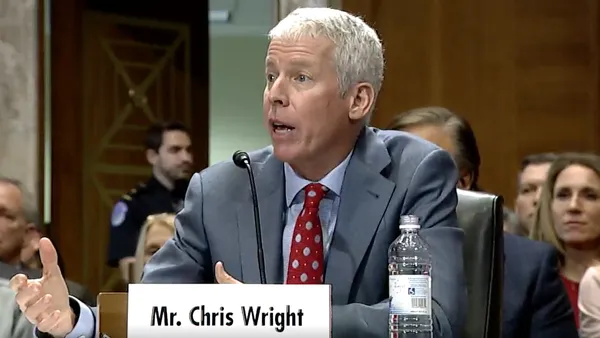Dive Brief:
- The D.C. Court of Appeals for the District of Columbia Circuit announced Monday that the full court will hear arguments on the EPA's Clean Power Plan, rather than a panel of three judges — a practice known as sitting "en banc." The hearing date for the regulatory package has been pushed back from June 2 to Sept. 27.
- The D.C. Circuit did not provide justification for its action, which EnergyWire notes is extremely rare. Last year, the court announced it would hear the Clean Power Plan on an expedited schedule. Judges Karen LeCraft Henderson, Judith Rogers and Sri Srinivasan were assigned to the three-judge panel that would hear the case.
- While the three judges were widely considered a favorable panel for the EPA, some backers of the plan welcomed the decision, saying it could hasten its path to the Supreme Court. Supreme Court nominee Merrick Garland and judge Cornelia Pillard recused themselves from the en banc hearing decision.
Dive Insight:
While it pushes the initial legal arguments on the Clean Power Plan back more than three months, the D.C. Circuit decision could help expedite the legal process on the regulation, which aims to cut carbon emissions from the power sector 32% nationwide by 2030 from 2005 levels.
If the D.C. Circuit had not decided to skip the three-judge panel, it would have been scheduled to hear the case at the beginning of next month. But no matter how it ruled, the losing party likely would have appealed for a hearing en banc anyway, pushing the full court to hear the case.
Reviewing legal comments on such a request could add months to the legal process at the D.C. Circuit, a regulatory lawyer told Utility Dive at a conference earlier this year, and only after the en banc ruling could parties appeal to the Supreme Court.
But with the three-judge panel out of the way, the court can skip that step and come to a ruling faster, the Washington Post notes, hastening the CPP's expected path to the Supreme Court. That's good news for the Obama administration, since the Supreme Court put a stay on the plan earlier this year, freezing all mandatory implementation until it can rule on the case.
But if the expedited timeline pleased the CPP's allies, its opponents highlighted the unexpected nature of the move. While the D.C. Circuit has skipped panel reviews before, like in U.S. v. Microsoft in 2001, the move is quite uncommon, and could signal that the judges feel the issues in the case are so significant that they all need to weigh in.
The decision "confirms our long-held view that the Power Plan is an unprecedented and transformative rule of a kind the states have never seen from EPA," West Virginia Attorney General Patrick Morrisey, who is leading a coalition of states challenging the plan, said in a statement.
The composition of the D.C. Circuit could benefit the EPA in an en banc review, EnergyWire notes. Of the 11 judges on the panel, seven were appointed by Democratic presidents. While Garland is sitting out cases as he receives consideration for the Supreme Court, Pillard could still participate in the case in September. Even if both sit out, Democratic appointees would still outnumber Republicans five to four on the full panel.




